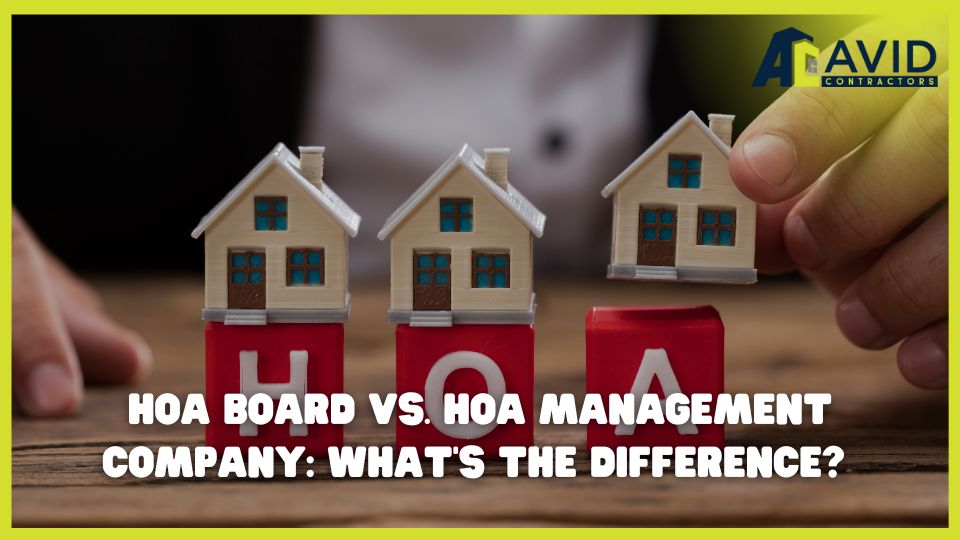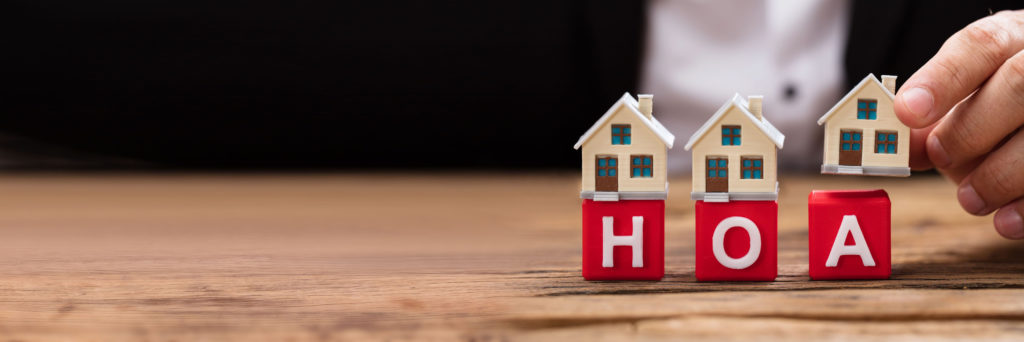The Vital Function of HOA Administration in Upholding Community Criteria and Laws
Homeowners Associations (HOAs) offer a pivotal function in maintaining community standards and guidelines, functioning as the guardian of common values and aesthetic appeals within areas. Their responsibilities extend past mere enforcement; they promote a sense of belonging and accountability among locals. By thoroughly taking care of guidelines and attending to non-compliance, HOAs not just guard property worths but likewise cultivate a setting where communication and partnership can flourish. The effectiveness of these monitoring techniques elevates pertinent inquiries about governance, resident involvement, and the balance in between policy and individual flexibility. What implications do these characteristics hold for the future of community living?
Relevance of HOA Administration
The relevance of effective HOA management can not be overstated, as it plays a crucial duty in preserving the total quality and allure of a community. Home Owners' Organizations (HOAs) act as the foundation of household communities, supplying structure and organization that fosters an unified living atmosphere. Via effective administration, HOAs make certain that area standards are supported, consequently shielding residential property worths and enhancing locals' high quality of life.
A well-managed HOA can promote open interaction amongst homeowners, address grievances promptly, and create a sense of belonging. It establishes guidelines and guidelines that show the neighborhood's values, making sure constant maintenance of shared spaces and amenities. Additionally, effective management help in economic preparation and source allowance, which is necessary for the sustainability of area jobs and maintenance.
Furthermore, an efficient HOA can promote community involvement by arranging events and promoting partnership among residents - austin hoa management. This not just enhances connections but also urges active engagement in decision-making processes. Ultimately, effective HOA monitoring is essential for cultivating a vibrant, eye-catching, and natural community that satisfies the requirements and expectations of its citizens
Key Obligations of HOAs
Often, House Owners' Associations (HOAs) assume an array of crucial responsibilities that are essential for the smooth procedure and upkeep of an area. One of the primary tasks of HOAs is to manage the economic elements of the area, including budgeting, collecting fees, and maintaining book funds for future repair work and renovations. This monetary oversight makes certain that the neighborhood continues to be well-maintained and lasting.
Additionally, HOAs are accountable for keeping common locations, such as parks, swimming pools, and landscaping. This entails regular maintenance, repair services, and enhancements to guarantee these rooms stay attractive and useful for homeowners. Communication is likewise a critical aspect of HOA obligations; they have to maintain homeowners informed regarding area information, upcoming meetings, and changes to laws or policies.

In addition, HOAs commonly help with neighborhood events and tasks, promoting a feeling of belonging and interaction amongst residents. They may also deal with management tasks, including record-keeping and conformity with state and regional guidelines. Through these duties, HOAs play an essential role in promoting a well-managed and cohesive neighborhood, eventually improving home worths and homeowners' top quality of life.

Enforcing Neighborhood Standards
To preserve an unified living setting, HOAs play a critical function in implementing area criteria. These standards, usually laid out in controling documents such as the Declaration of Conditions, covenants, and restrictions (CC&R s), are created to maintain building worths, make certain visual uniformity, and advertise a sense of neighborhood among locals. HOAs should guarantee that all property owners follow these guidelines to create a properly maintained area.
Enforcement devices can differ, however usually include routine inspections of residential or commercial properties, interaction with locals pertaining to violations, and the charge of fines for non-compliance. Such actions might consist of penalties, requests for restorative activity, or, in severe instances, lawful process. An aggressive strategy to enforcement not only hinders prospective violations yet additionally cultivates a culture of accountability amongst homeowners.
HOAs should clearly communicate consequences, assumptions, and standards to all click here for more house owners. Eventually, reliable enforcement of community requirements by HOAs is vital for keeping the general quality of life within the community and promoting the worths that locals have spent in their homes.
Problem Resolution Methods
Reliable problem resolution strategies are vital for maintaining a cooperative and calm area within property owners' organizations (HOAs) HOAs often offer as the very first line of protection in attending to conflicts that develop among citizens. Implementing positive communication methods is essential; this includes developing clear networks for residents to voice concerns and complaints. Regular meetings and community discussion forums can facilitate open dialogue, enabling participants to reveal their viewpoints and look for good understanding.
Additionally, mediation plays a considerable function in fixing conflicts (austin hoa management). Neutral third-party moderators can aid facilitate discussions and guide celebrations towards a collective service. This strategy emphasizes compromise and fosters a sense of community, instead of permitting disputes to escalate into controversial confrontations
In addition, developing and enforcing a clear collection of policies and procedures for taking care of disputes is crucial. These guidelines should be interacted properly to all residents, guaranteeing every person comprehends the procedure for lodging issues Get the facts and seeking resolution. Supplying dispute resolution training for board participants and area leaders outfits them with the needed skills to handle disputes successfully, guaranteeing that problems are fixed agreeably and in accordance with the area's regulations and criteria.
Enhancing Home Values
Maintaining unified connections among citizens not only fosters a feeling of neighborhood however likewise plays a significant duty in improving home worths within homeowners' associations (HOAs) Reliable HOA management makes certain that area criteria and laws are upheld, developing an environment where property maintenance is focused on. Well-kept common areas, adherence to architectural standards, and timely enforcement of guidelines add to an enticing neighborhood that brings in potential buyers.

Additionally, regular upkeep and improvement tasks, such as landscaping and facility upgrades, show favorably on home values. HOAs that properly take care of budget plans to money these campaigns show a dedication to long-term value conservation.
Eventually, an HOA that prioritizes community relations and residential property requirements produces a preferable living environment. This not only advantages present citizens however also positions the neighborhood positively in the property market, making sure that residential property values remain attractive and durable to future home owners.
Final Thought
To conclude, HOA administration is read this post here important for maintaining neighborhood criteria and regulations, therefore fostering an unified living environment. Via the enforcement of guidelines, regular building inspections, and efficient dispute resolution methods, HOAs play a critical function in boosting building values and promoting openness among residents. The proactive actions applied by HOAs not just safeguard the visual integrity of communities yet also add to a cohesive atmosphere that supports open interaction and collaboration among all locals.
With effective management, HOAs ensure that area requirements are maintained, consequently securing building worths and improving residents' top quality of life.
With these duties, HOAs play an important function in advertising a well-managed and cohesive neighborhood, inevitably boosting residential or commercial property worths and locals' top quality of life.
Ultimately, efficient enforcement of community standards by HOAs is important for maintaining the total quality of life within the neighborhood and upholding the values that citizens have actually invested in their homes.
Offering dispute resolution training for board members and community leaders equips them with the needed skills to handle disputes effectively, ensuring that conflicts are settled agreeably and in accordance with the neighborhood's guidelines and criteria.
Preserving unified relationships amongst locals not only promotes a feeling of neighborhood however additionally plays a substantial duty in enhancing building values within homeowners' associations (HOAs)